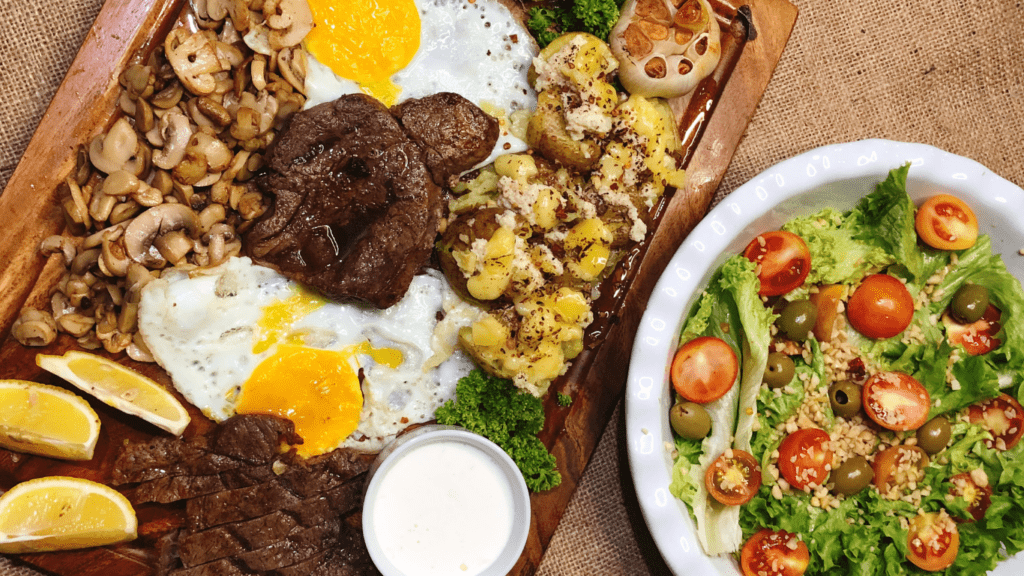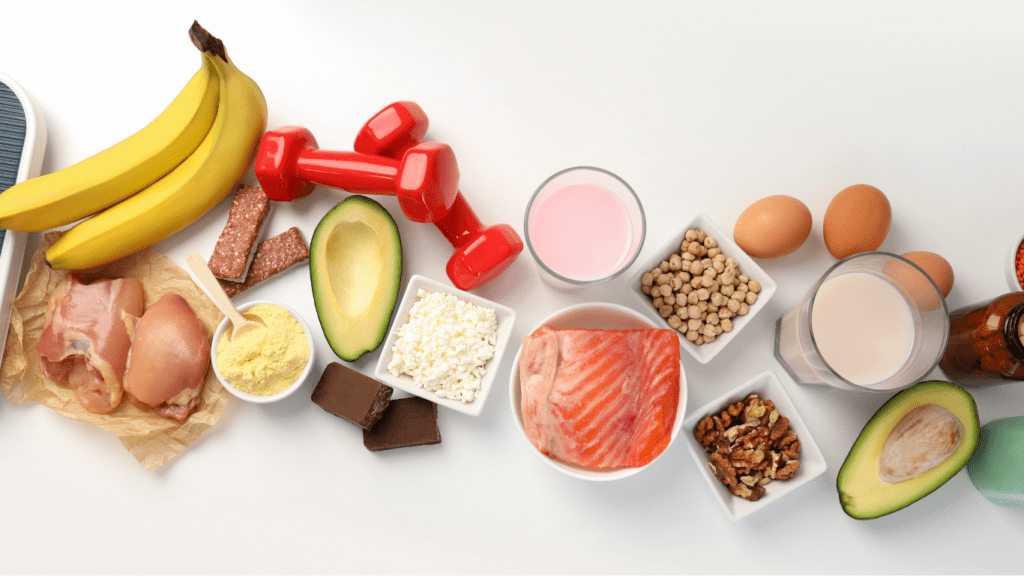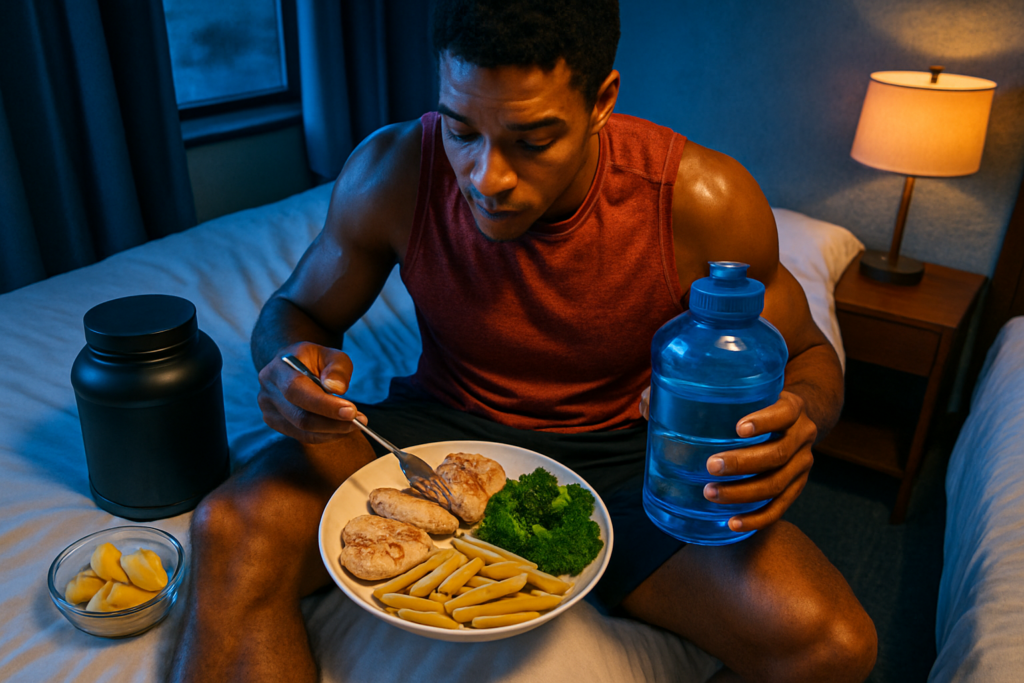Understanding Pre-Game Nutrition
Pre-game nutrition plays a critical role in enhancing performance, and it’s essential to know which nutrients provide optimal benefits. Carbohydrates serve as the primary energy source by replenishing glycogen stores within muscles. Incorporating complex carbs like whole grains and sweet potatoes ensures sustained energy release. Proteins aid in muscle repair and growth. Lean sources, such as chicken or tofu, are ideal for building and maintaining muscle mass without adding unnecessary fats.
Fats act as a secondary energy source, especially during prolonged activities. Healthy fats from avocados and nuts contribute to energy endurance. Timing is crucial, as consuming the right nutrients 2-3 hours before activity maximizes energy availability. Hydration is equally vital, since dehydration impairs performance. Water and electrolytes should be taken in sufficient quantities to prevent fatigue and maintain optimal function.
Selecting balanced meals or a combination of these macronutrients supports energy levels and performance. Knowledge of pre-game nutrition ensures athletes can perform at their best by strategically managing their food intake.
Essential Nutrients for Energy
Maximizing athletic performance depends on fueling the body with the right nutrients. Essential components like carbohydrates, proteins, and healthy fats play critical roles in enhancing energy and endurance.
Carbohydrates for Quick Energy
Carbohydrates serve as the body’s primary energy source. Consuming complex carbs, such as oats and brown rice, ensures a steady energy release. These foods contain fiber, helping maintain blood sugar levels, preventing energy spikes and crashes during activities.
Proteins for Muscle Support
Proteins aid in muscle repair and growth. Incorporating lean protein sources like fish or beans in meals helps build strength and supports recovery post-exercise. Consuming around 20-30 grams of protein before a game offers muscle benefits without causing digestive discomfort.
Healthy Fats for Sustained Endurance
Healthy fats contribute to long-lasting energy reserves. Sources like olive oil and seeds provide essential fatty acids that aid in prolonged activities. While fats take longer to digest, they become a significant energy source once glycogen stores deplete.
Timing Your Pre-Game Meal
Meal timing plays a crucial role in energy and endurance levels during a game. Consuming meals and snacks at the right intervals determines immediate and sustained performance.
Meal Timing for Optimal Performance

To ensure optimal energy levels, I eat my main pre-game meal about 2-3 hours before the game. This period allows my body to digest the meal and convert it into readily accessible energy. Incorporating:
- carbohydrates
- proteins
- healthy fats
during this meal supports a balanced energy release throughout physical activity.
Snack Options Before the Game
I enhance my energy reserves with snacks approximately 30-60 minutes before the game. This snack focuses primarily on easily digestible carbohydrates to provide a quick energy boost. Options include bananas, energy bars, or a small bowl of oatmeal. These choices help maintain glucose levels, ensuring I remain energized from the first whistle through to the final play.
Hydration Strategies
Hydration is crucial to pre-game nutrition. Proper fluid intake boosts energy and performance, ensuring athletes maintain endurance.
Importance of Staying Hydrated
Fluid balance in the body is essential for optimal athletic performance. Dehydration can lead to fatigue and decreased endurance, hampering overall performance. Research from the American College of Sports Medicine shows that even a 2% loss in body weight due to dehydration can significantly impact physical capabilities. Staying hydrated keeps cognitive functions sharp and enhances physical performance, making it a critical strategy in pre-game preparation.
Beverages to Consider
Choosing the right beverages is vital for maintaining energy and endurance. Water remains the best option for most, but athletes may benefit from drinks that replenish electrolytes and carbohydrates. Sports drinks can be valuable, especially during high-intensity activities lasting over an hour, as they contain sodium, potassium, and sugar for energy. Coconut water provides a natural alternative with electrolytes and fewer sugars. For shorter events, sticking to water ensures optimal hydration without excessive caloric intake.
Common Mistakes to Avoid
- Inconsistent Meal Timing
Skipping meals or eating too close to game time can sabotage performance. I avoid these mistakes by planning meals 2-3 hours prior to the game. This timing ensures proper digestion and energy release, helping me maintain peak energy without sluggishness or stomach issues. - Neglecting Carbohydrates
Some athletes underestimate carbohydrates, opting for low-carb diets. I focus on complex carbohydrates like whole grains and sweet potatoes to ensure sustained energy. Skipping carbs leads to fatigue and reduces endurance, making it a crucial component of my pre-game nutrition. - Overloading on Protein
Consuming excessive protein can cause digestive discomfort and slow performance. I aim for 20-30 grams, focusing on lean proteins like chicken or fish. This approach supports muscle health without the risk of feeling too full or uncomfortable during games. - Ignoring Hydration Needs
Inadequate hydration negatively affects performance. I make hydration a priority by drinking water and electrolyte-rich drinks when necessary. Dehydration not only affects energy but can also lead to cramps and decreased cognitive function, impairing overall performance. - Experimenting with New Foods
Trying new foods before a game is risky. I stick to familiar meals to avoid adverse reactions or digestive issues. Consistency helps me maintain energy levels and focus on performance without worrying about how my body will respond to unfamiliar foods.





